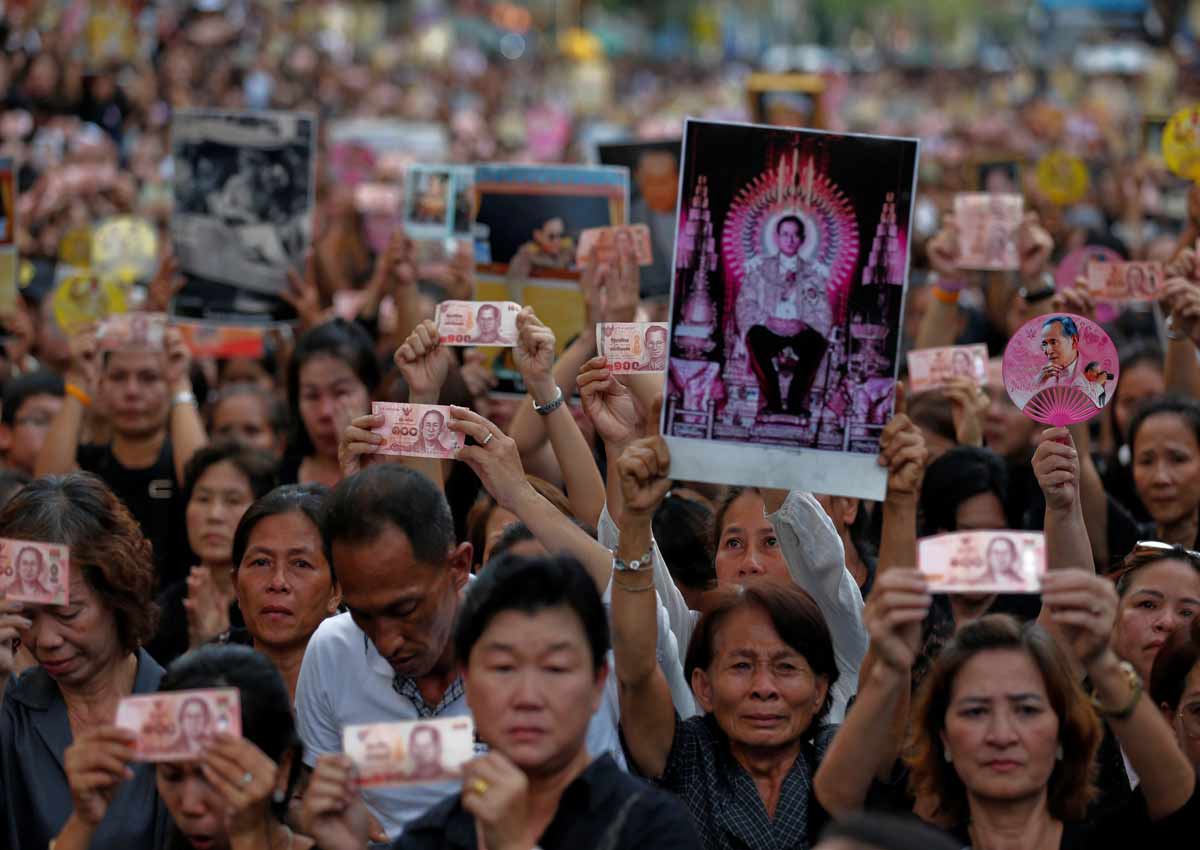Bangkok was not its usual self yesterday. Gone were the noise and bustle it is famous for, replaced by a sombre mood as the Thai capital’s residents mourned the passing of King Bhumibol Adulyadej en masse.
While the government has declared a one-year mourning period and asked the people to dial down any form of entertainment for 30 days, businesses took their own steps to pay respect to the 88-year- old monarch, a father figure to the country’s 68 million Thais.
In a busy section of Sukhumvit Road, a bar that normally blasts rock music to attract customers dialled it down to a volume barely audible above the din of traffic.
“We normally joke and laugh with customers,” said Ms Dream Pornpicha, 22, a waitress there. “Now, we cannot.”
Over at a nearby shopping mall, store attendants clad in black were busy changing their window displays to dress mannequins in black, white, or grey. Monochrome shirts and blouses were on prominent display at pop-up stores in the atrium.
“Our head office told us about it last night, to do this for one month,” Mr Yos-anan Jantarak, the store manager, told The Straits Times.
“My King…” he said, choking, by way of explanation.
In Siam Square, where giant electronic billboards usually vie for attention, the screens were black.
So, too, those on the skytrains. Instead of electronic advertisements, the screens displayed the words: “We bear the greatest grief and fear. We have lost the main pillar of our lives.
“No matter how much time passes, you will always be in our hearts.”
At the entrance of train stations and shopping malls, few protested when security guards began opening every single bag or backpack to check the contents.
Hours before King Bhumibol’s body was moved from Siriraj Hospital – where he died on Thursday – to the Grand Palace yesterday, soldiers and policemen manned key intersections to handle any potential disruption to the procession.
Since Thursday night, all television channels, including international ones like BBC, CNN and Bloomberg, have been running the same state video clips of King Bhumibol’s life and work, the result of an order to take over broadcast content.
The videos were interspersed with interviews with Thai citizens about their thoughts on the monarch. Radio stations similarly broadcast the same content.
The Thai government had originally intended to have mainstream media outlets continue to run such content for 30 days.
In a change of heart yesterday, it said TV and radio stations would be allowed to resume their normal programming after midnight. However, content deemed “entertainment” is still not allowed.

This article was first published on October 15, 2016.
Get a copy of The Straits Times or go to straitstimes.com for more stories.























































































































